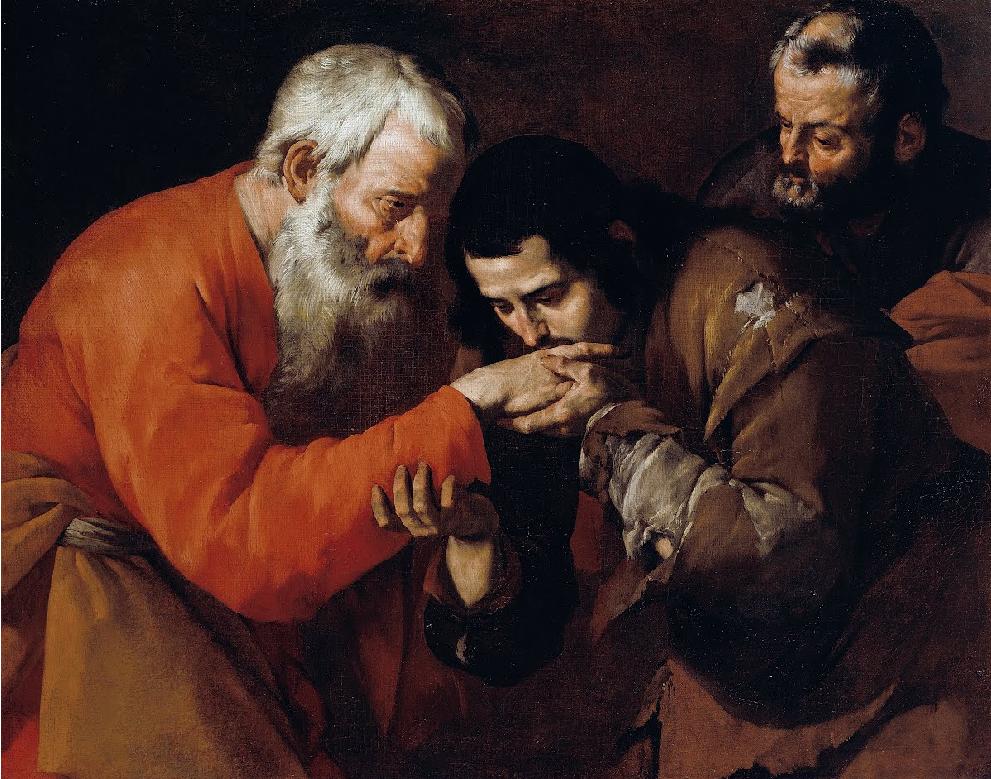
Fourth Sunday of Lent
♦
Fourth Sunday of Lent
Rita Kammermayer
March 28, 2019
The parable of the Prodigal Son in Luke’s gospel is prefaced with two other parables which speak restoration of that which was lost. Typical of the society of the time, the shame/honor mentality was very prominent. The loss of a sheep or of a coin (part of the jewelry for a dowry) was a disgrace and the great effort to restore that which was lost was paramount. In such a society one’s association with others indicated their class distinction. These three parables serve as a response to the Pharisees and the scribes who questioned Jesus and could not accept the fact that he welcomed and ate with sinners.
The Greek word for parable is paraballo with para meaning beside/alongside while ballo means to throw.
These simple stories, so rich in imagery, contain a message that is often not visible at first. As Jesus spoke of everyday things that were familiar to all, he focused on God’s care for his creatures and the importance of a relationship with God.
The younger son, in asking for his inheritance, is actually expressing a wish that his father were dead. He seems to be a reckless youth who must learn the hard way believing that he knows what life is about. In very grim circumstances, he finally comes to his senses and decides to return home. He tells his father that he is prepared to be a hired hand and no longer called his son; in this, his conversion occurred. The father allows his son to leave but never forgets him. He anxiously waits for his return and keeps watch at the gate in the steadfast hope that he will return. When he sees his son coming, he runs to him and embraces him. The father loves his son unconditionally, blocking out all wrongdoing. The elder son who had remained with his father all his life now cannot enter into the celebration of his brother’s return. He never even calls him his brother but rather ‘this son of yours’ (15:30). He does not realize the impact of his return. Perhaps when he is a father he will understand the love a parent has for their child. Maybe both sons can only learn through experience. The very moment the father has recovered a son (15:24), he is danger of losing another son. He pleads with his elder son to come and celebrate his brother’s return. The father could have easily sent a servant to bring him but instead he goes to him, for he unconditionally loves this son too. The older son responds that he has never disobeyed his father, yet now with this refusal, he does disobey. Note that the elder son also considers himself a hired hand, “Listen! For all these years I have been working like a slave for you” (15:29). “Jesus could have ended this parable without a mention of the feast but he reserves this last part as the climax. The reader is forced to reflect on his own resources. Does the elder son enter into the celebration or not? How would you, reader, react? Which son eventually is the lost one proper?” (Farmer, 1487)
The parable teaches us about the Father who is loving, merciful and forgiving. With great love God waits for us and like these two sons, we must learn of God’s unconditional love for us. Even in our foolish thinking and futile yearnings, God is there! Abundantly merciful, God calls us too to be merciful. “Humans have to turn back to God, but they do not have to crawl back. Divine love meets them more than halfway. Grace is a proactive energy that seeks whoever is willing to be found.” (Shea 83)

The Return of the Prodigal Son – Italian (Neapolitan), c.1630s
Source: Google Arts & Culture

This week’s teaching commentary was prepared by
Rita Kammermayer,
nds, BA, B.Ed, Masters of Pastoral Studies
Bat Kol alumna 2001
PLEASE NOTE: The weekly Parashah commentaries represent the research and creative thought of their authors, and are meant to stimulate deeper thinking about the meaning of the Scriptures. While they draw upon the study methods and sources employed by the ISPS-Ratisbonne, the views and conclusions expressed in these commentaries are solely those of their authors, and do not necessarily represent the views of ISPS-Ratisbonne. The commentaries, along with all materials published on the ISPS-Ratisbonne website, are copyrighted by the writers, and are made available for personal and group study, and local church purposes. Permission needed for other purposes. Questions, comments and feedback are always welcome.
Share this with your friends
Share on facebook
Share on google
Share on twitter
Share on whatsapp
Institute Saint Pierre de Sion – Ratisbonne – Christian Center for Jewish Studies
Congregation of the Religious of Our Lady of Sion
Contact us:
secretary@ratisbonne.org.il
26 Shmuel Ha-Naguid Street – Jerusalem
Subscribe to Newsletter

No responses yet